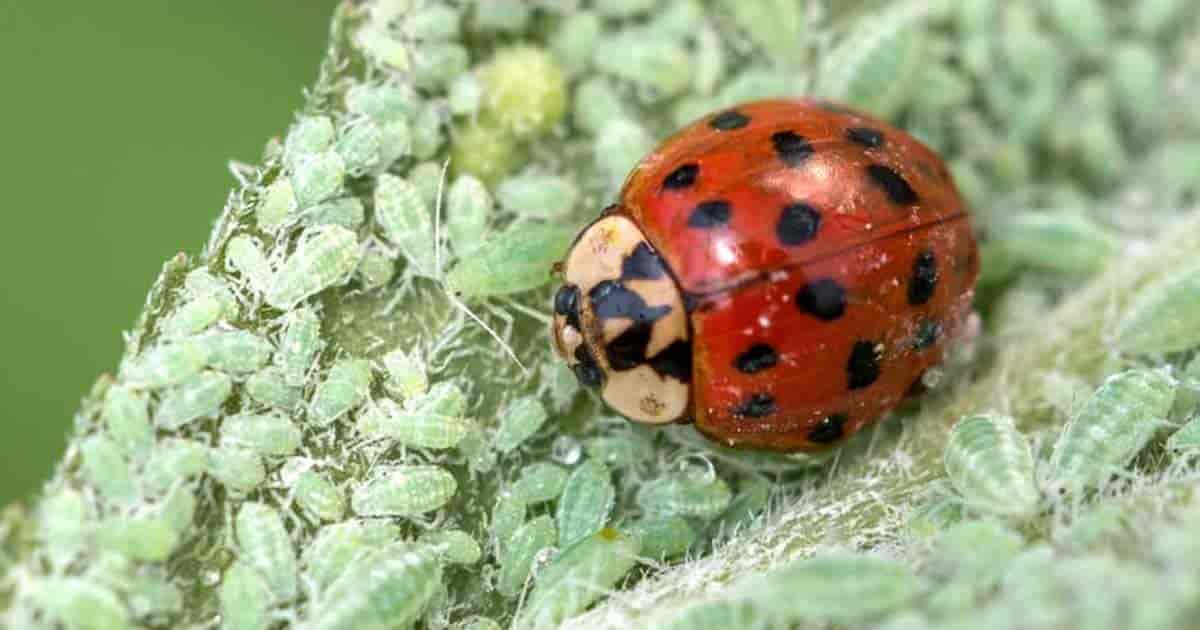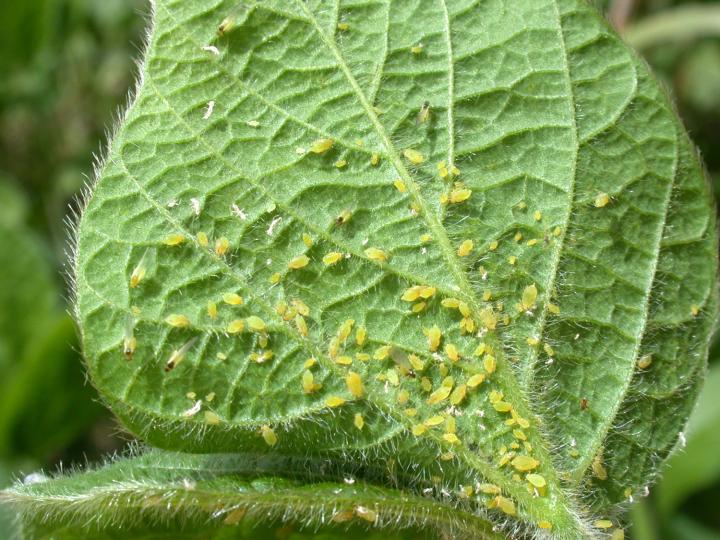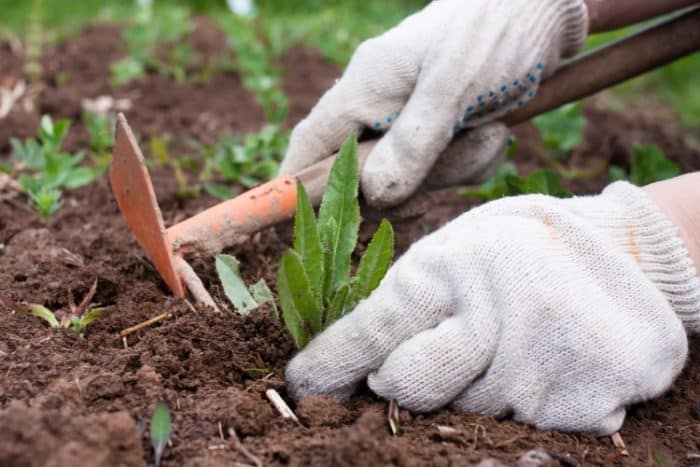There are hundreds of species of aphids in the North alone, and many species can have several offspring per day. In fact, even a male is not always necessary; females can in some cases clone small copies of themselves without being fertilized. When there are too many people on a plant, the young are born with wings that allow them to move easily to other plants. Aphids can quickly occupy an entire area.
Aphids shed their skin and a first sign of their presence is their white skin laying on the leaves. The lice themselves like to rest on new growth and on the underside of the leaves. Sometimes you can see that the leaves have curled up, this is because the aphids have sprayed poison on them which hinders growth.
In addition to the fact that aphids weaken plants by sucking out their nutrients, they leave behind slightly sticky stools, called honey dew, in which airborne fungal spores easily cling and the plant can then also be affected by fungal infections, such as sooty mold.
Some species of ants love the sweet honey dew and like to milk the aphids in it, in return protecting them from predatory insects, such as ladybugs. But despite the fact that aphids are a nuisance to the grower, fortunately there is much that can be done to control them. Interested in learning more? You’ve reached the right place! Today, that’s exactly what we are going to
Encourage Predatory Insects

To keep aphid numbers at a reasonable level, it is important to monitor attacks early and take advantage of their natural enemies, such as ladybugs, two-tails, parasitic ticks, nettle larvae and aphid lions (golden-eyed dragonfly larvae), they eat all the aphids in quantity.
With predatory insects in the garden, aphids rarely become a problem. And what predatory insects are looking for most of all is diversity.
If you grow lots of different plants and flowers, you create an environment where aphids have a harder time – and it’s not just because their enemies take advantage of it. Aphids really like monocultures, which is the opposite of diversity.
When a single plant grows over a large area, they have an unlimited supply of their favorite food. So mix and match well in the grounds and flower beds.
Another way to encourage predatory insects is to set up nests for them, there are nice ladybug nests to buy and two-tails like a wet magazine rolled up to hide in. Place them near aphid colonies and they will soon be on the hunt.
Keep Plants Strong and Healthy
Aphids like to attack weak plants, so it’s important to keep plants in good shape so they’re more resistant to attack, such as regular fertilization and careful watering. Dried plants are more attractive to aphids because they have a higher concentration of sugar solution. So they like to show up when it is dry outside.
Non-Toxic Methods
Insecticide for aphids is a bad idea because it also kills the aphids’ enemies, the predatory insects. These take a long time to return, while aphids can reproduce quickly and become even more numerous than before. Paradoxically, aphids increase in number in the long run if you try to poison them. This is also true for mosquitoes and many other pests, for example.
A homemade solution, such as water with soap, is gentler, but still effective if it hits the lice directly. You can also squeeze the lice until they die or simply spray them with a strong stream of water, the predatory insects then eat them off the floor. You can also cut off the infected parts in some cases, for example on beans where they often form colonies at the top.
Another aid is to place adhesive boards among the infested plants.
Additional Tips to Control Aphids
- Encourage predatory insects by planting many different kinds of plants, for example marigolds, dill and yarrow are popular.
- Spray plants with soapy water, possibly with a drop of alcohol (T-red) added, to smother and dry out lice.
- Rinse the plants with a strong stream of water. If you have a lot of predatory insects in the garden that can deal with the lice as they fall to the ground, this method works well.
- Squeeze them until they die with your fingers, or run a roll of sticky cloth over the plant.
- Cut off severely infested parts of the plant, if you can do so without damaging the plant.
- If you see their nests near infested plants, consider removing the aphid guards.
- Get helpful animals. In greenhouses, grow tunnels and enclosed spaces, you can use purchased beneficial animals such as golden-eyed dragonflies, aphid parasitic ticks and bile mosquitoes. Of course, it is also possible to let them out in the garden, but there is a risk that they will disappear.
However, aphids are natural in a garden, so eliminating them completely is difficult, they will still appear from time to time due to their exceptional ability to reproduce, but fortunately, it is relatively easy to get rid of them. How about you? Do you have any other tips to share? Let us know in the comments below.



